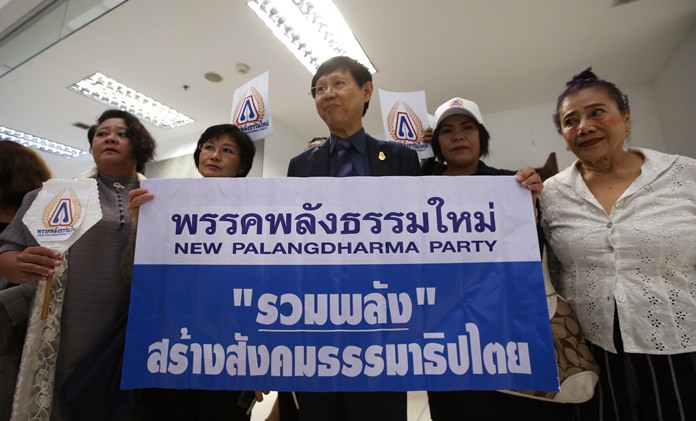
Bangkok (AP) — At least 42 prospective political parties have submitted registrations to Thailand’s Election Commission after the government allowed new parties to form ahead of polls supposed to be held by next February.
 Registration is just the start of the process, and does not automatically mean the parties have been officially recognized. They must satisfy a raft of requirements within 180 days and still need the government’s permission to operate. Submissions are being accepted from Friday through March 31.
Registration is just the start of the process, and does not automatically mean the parties have been officially recognized. They must satisfy a raft of requirements within 180 days and still need the government’s permission to operate. Submissions are being accepted from Friday through March 31.
There is skepticism about the announced election date because several previously promised deadlines were pushed back, and in announcing the February date last week, Prime Minister Prayuth Chan-ocha suggested it is conditional on the political situation remaining calm.
There is also speculation that some parties are being established to support the military’s continued dominance over the government. They would support having Prayuth remain the country’s leader under a new constitutional clause that allows the next parliament to choose an unelected “outsider” prime minister.
Under the new Political Parties Act, parties must have at least 500 registered members and 1 million baht in funds to qualify for registration.
A range of political groups were present at the Election Commission on Friday to register for the much-anticipated elections.
Election Commission Secretary-General Jarungvith Phumma said the turnout “shows that people have drive and belief in democracy.”
Among the parties suspected of fronting for the military is the New Phalangdharma Party, whose leader, Ravee Machamadol, said that if the situation calls for an outsider prime minister, that’s what his party would support.
“In voting for an outsider, we will vote for the best available person, and if on that day Prayuth is the best person, then we will vote for him,” he said.
Political greenhorns also turned up with the intention to contest the next election. Among them was a dog-breeder, known by the nickname “Mark Pitbull,” who leads the Thai Civilized Party.
“It’s time to take risks. If we wait, who are we waiting for, other than ourselves to do it?” he said. “I’m putting myself in the race to inspire young people to be brave and join the field.”
Titipol Phakdeewanich, a political science professor at Ubon Ratchatani University, said he has doubts about how much influence the new political parties can have over the future of Thai politics, given that the government has instituted legal changes to maintain its influence, including the establishment of appointed bodies to dilute the power of elected officials.
He said, however, that the prospect of elections is cause for some optimism.
“I would also argue that although new voices can’t win a majority, they can at least represent new generations in the parliament and assist in maintaining the balance of power,” Titipol said.





